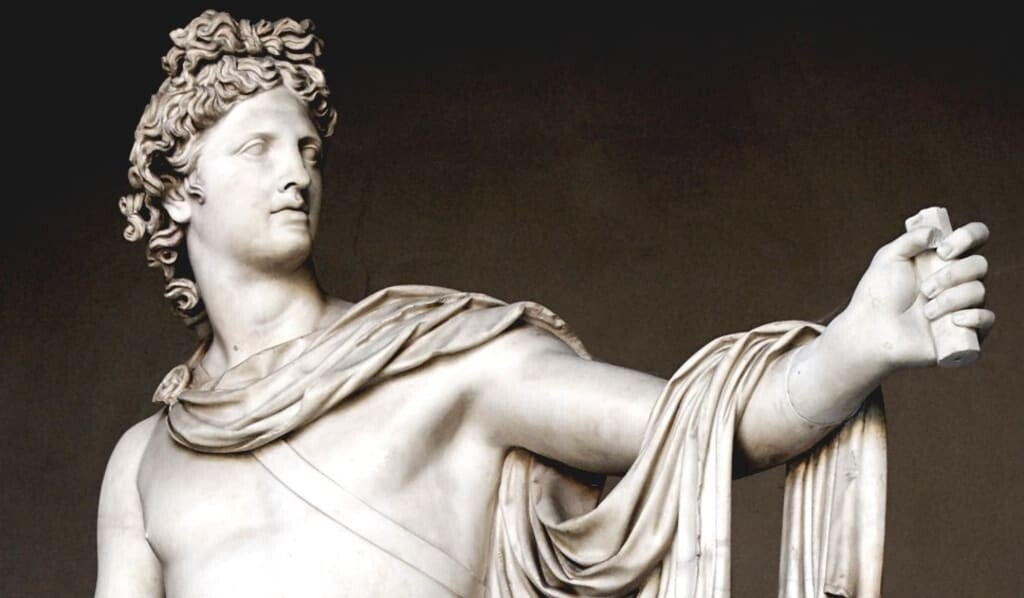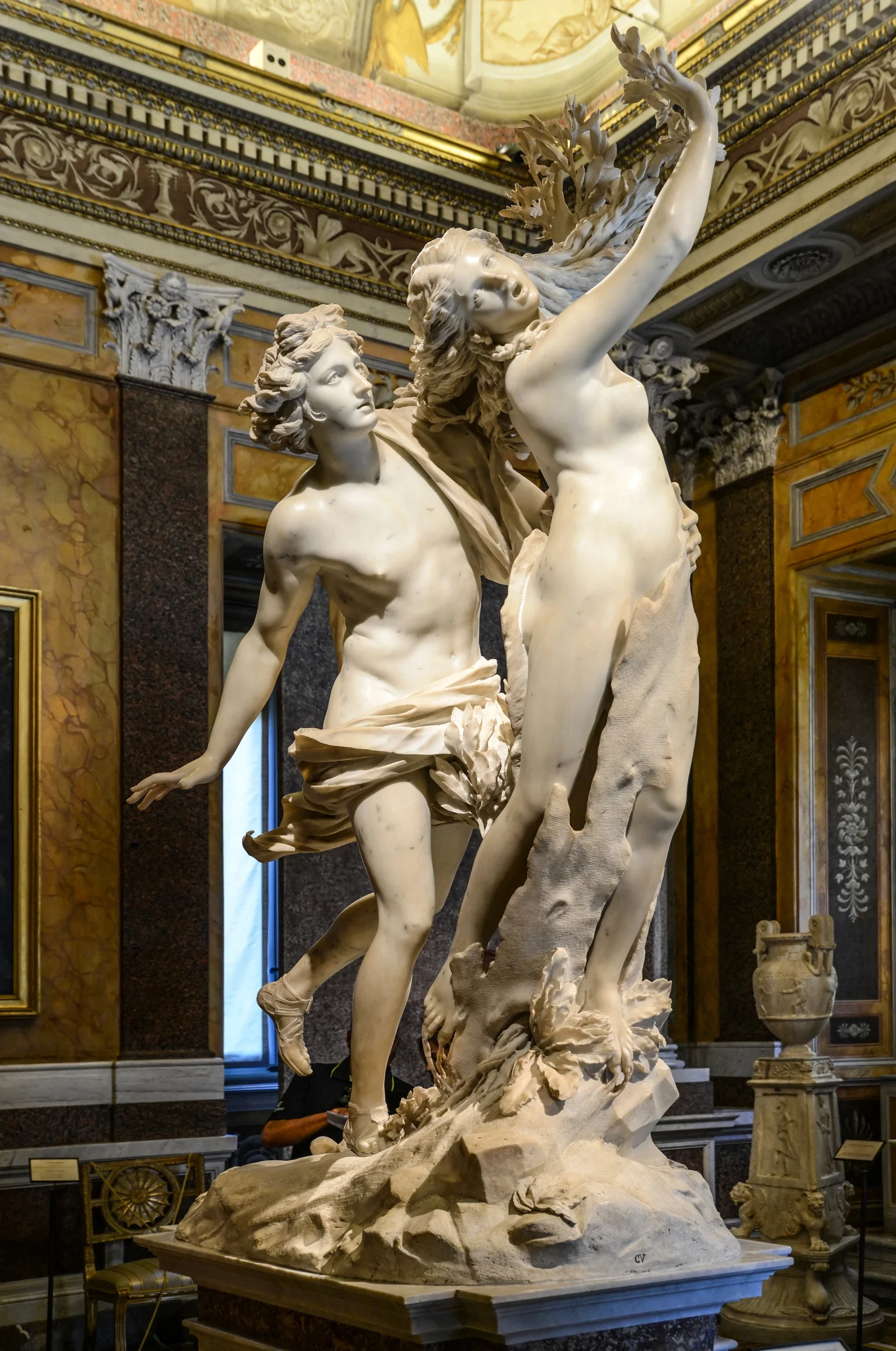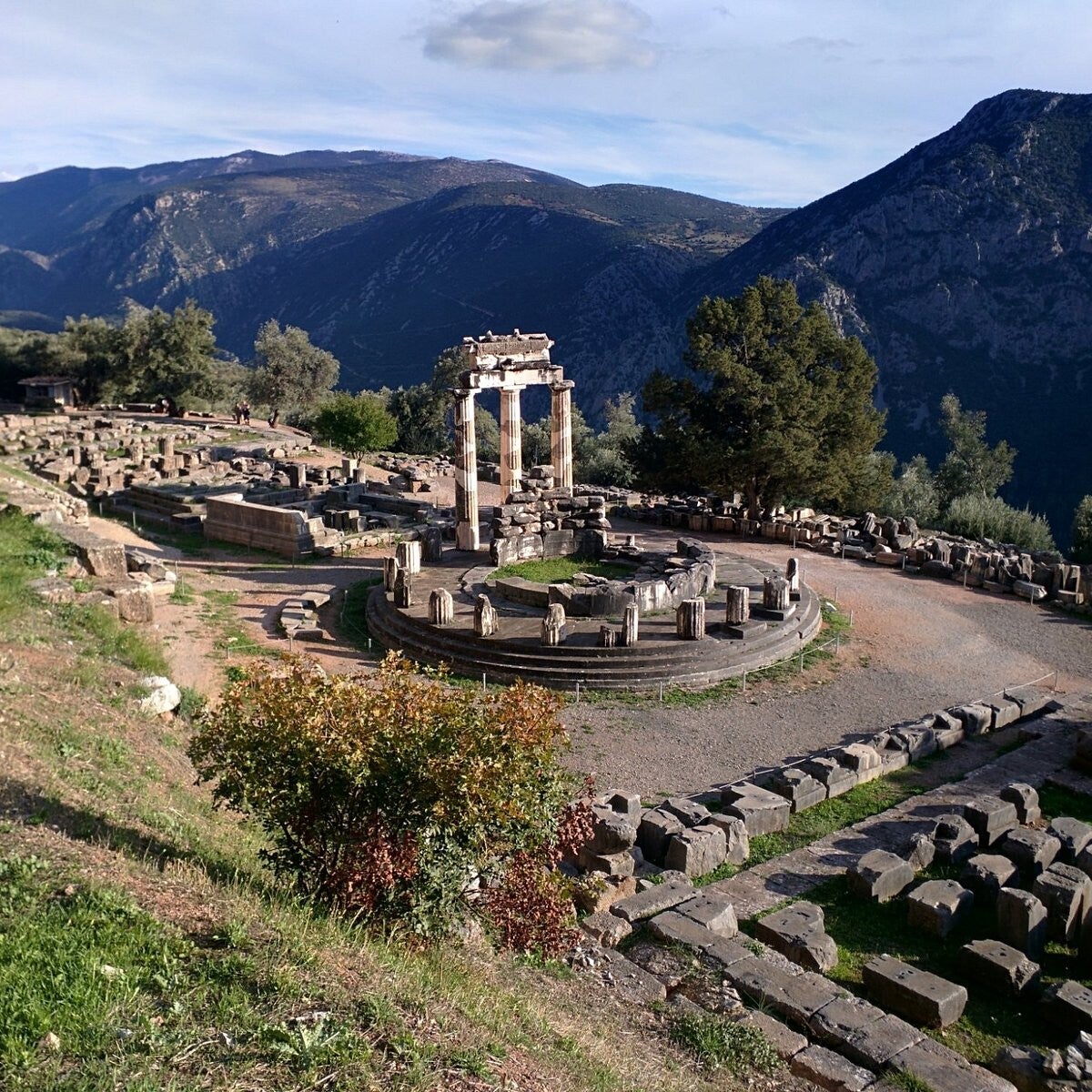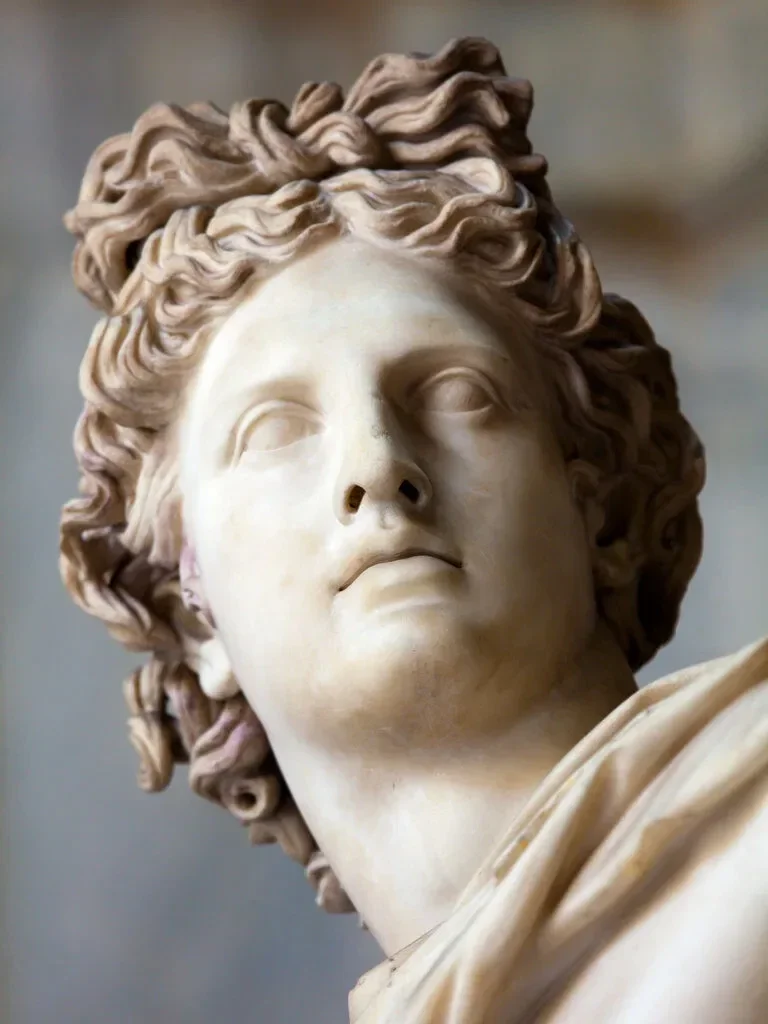
Apollo: Light That Longs, Fire That Sees
God of Music, Prophecy, and the Beautiful Ache
In the golden halls of Olympus, where the gods move like thoughts through time, Apollo holds his place not with thunder or conquest, but with clarity, elegance, and longing.
Twin-born of Leto, child of Zeus, he arrived on the seventh day of the seventh month, already radiant. The island of Delos trembled with his birth, the olive tree bent, the lyre found its voice.
He is the god of many things; sunlight, poetry, healing, music, prophecy, archery, but to reduce him to domains is to miss the ache that runs through all he touches.
Apollo is the one who sees, and because of this, he often aches.
To see what others do not is to live with a thousand almosts, a thousand things slipping just beyond the reach of the hand or the heart.

The Ache of the Golden One: Love and the Longing for What Cannot Be Held
Though he is called Phoebus, “the shining,” his radiance is rarely returned in kind.
In love, Apollo’s stories speak not of conquest but of transformation through grief.
He loved Daphne, and she became a laurel.
He loved Hyacinthus, and he became a flower.
He loved Cassandra, and she became a voice no one would heed.
He offered immortality to the Sibyl of Cumae, and she forgot to ask for eternal youth, so she withered slowly, her body fading, her voice remaining.
These are not simply cautionary tales. They are reflections of the human heart:
We desire. We offer all. And sometimes, we forget to ask the right thing.
We learn, too late, that not all love can be kept in form.
Apollo teaches not through possession, but through the consequences of yearning without wisdom.
He does not punish for rejection. But he never forgets it.

The Sibyls and the Serpent: Where the God Speaks
Delphi is his shrine; but it was once Gaia’s.
Before the marble, before the hymns, there was a serpent.
The Python, guardian of the chthonic cave, coiled in the earth’s breath, keeper of the old wisdom; the unspoken knowing that rises from shadow.
The story goes:
Apollo slays the serpent to claim the site.
But the wisdom of Gaia never dies.
It flows still, through the Pythia, through the Sibyls, through the earth herself.
This myth is not one of conquest - it is one of integration.
Apollo, god of clarity and reason, does not speak alone.
To prophesy, he must partner with the deep feminine.
His light becomes truth only when it moves through a woman, a cave, and a serpent.
The Pythia, seated on the tripod above the sacred cleft, did not merely echo his will; she became it.
Inhaling the breath of the earth, she entered trance, her words shaped not by intellect, but by surrender.
And this voice travelled far beyond Delphi.
To Cumae in Italy, where the Sibyl wrote her prophecies on leaves, easily lost to the wind if not gathered with care.
To Erythrae, to Samos, to the Tiburtine hills; each Sibyl a vessel of vision, each carrying the same sacred tension:
This is what is coming. Will you be ready?
Apollo’s connection to the Sibyls reminds us:
Clarity does not guarantee control.
The future may be glimpsed - but never grasped.
To seek divine knowledge is to ask carefully, listen humbly, and act with reverence.
Archetype of Light, Precision, and Poetic Order
Apollo is often mistaken for a god of cold perfection.
But beneath the measured words and the shining skin is a being of deep poetry and feeling.
He is not the fire that devours. He is the fire that burns with discipline.
He is the surgeon’s hand, the poet’s pause, the archer’s breath before the arrow is loosed.
He governs not chaos, but coherence.
Not blind power, but refined clarity.
And this clarity can be a burden, for when one sees the path clearly, there is no comfort in denial.
He asks:
- What are you aiming for?
- Do you truly want it, or do you only desire the idea of it?
- Will you still want it once you hold it?
Apollo makes us think.
Not just of ideas, but of intentions.
His gifts are not given lightly. They are earned by those willing to walk the line between light and loneliness, discipline and desire.

Devotion to Apollo: Clarity as a Sacred Offering
To walk with Apollo is not to worship from afar, but to enter into a relationship with clarity itself.
He does not ask for blind obedience; he asks for refined intention, for beauty made sincere, and for truth made visible.
Devotion to Apollo begins where stillness meets focus.
Where the voice is used with precision.
Where thought is married to rhythm.
Where desire is purified through choice.
His offerings are not complicated. But they must be clean.
- A lit candle at dawn, for the rising of light
- A laurel leaf, symbol of transformation through longing
- A hymn, poem, or melody offered in your own voice, however imperfect
- A moment of silence, where you ask not for answers - but to become ready to receive them
- A question, spoken aloud with courage: What must I see? What am I avoiding?
- A journal beside the flame, where dreams or insights may fall like arrows
To devote oneself to Apollo is not to become perfect; but to become willing to see what is, and to choose not to turn away.
He honours:
- Honesty, even when it trembles
- Discipline, not as punishment, but as devotion to alignment
- Creative acts that carry the frequency of truth
- Grief that seeks purification, not indulgence
- Love that does not grasp, but witnesses in reverence
He is a god who returns with the dawn. He is never far, only waiting for the space to shine.
To walk with him is to let your mind become luminous, your words become arrows, your emotions become instruments of insight.
It is not an easy path; but it is a beautiful one.
He shines because he must.
He sings, though his throat tightens with sorrow.
He offers prophecy, though he cannot change what is to come.
And still, he dances. Still, he plays the lyre. Still, he hopes.
Apollo teaches us this: that light, even when unreturned, must be given.
That beauty, even when unheld, must be sung.
That clarity, even when painful, is a form of devotion.

